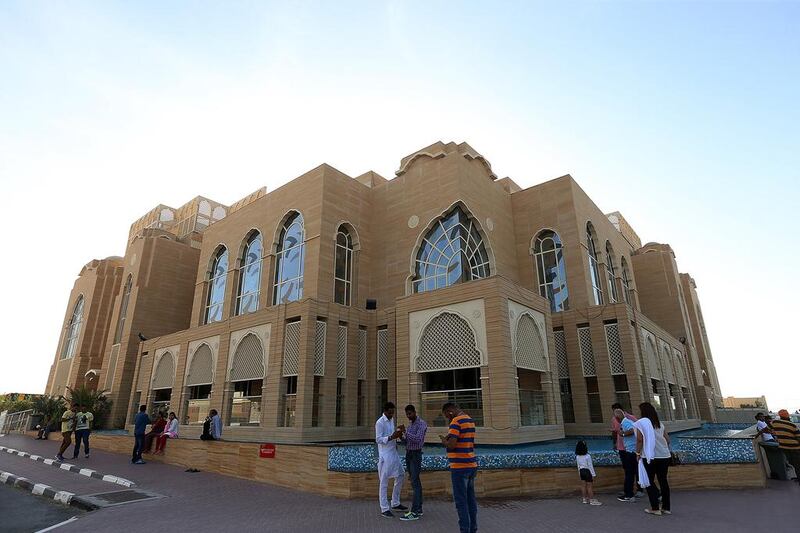DUBAI // Thousands of people congregated over the Eid break at the Sikh gurdwara in Jebel Ali, some to pray and others to enjoy a meal, as the temple opened its doors to all religions and nationalities.
Some arrived in buses from labour camps, others made their way from nearby workers’ accommodation. Many who entered the sandstone-coloured structure were not Sikhs.
“I do not join the prayers and singing but the people are always welcoming so I come here twice a year during Eid,” said Suleiman Haya, a Bangladeshi mason from Ajman.
“It is very peaceful and, if you ask, they sometimes give you food packets to take home. So many people come, still there is always food for everyone.”
The Guru Nanak Darbar, the UAE’s first official gurdwara, opened three years ago behind Jebel Ali Hospital. The 50,000-strong Sikh community previously prayed inside the Hindu temple complex in Bur Dubai.
The rhythmic chants of devotional songs filled a large hall that followers flock to for daily prayers, starting at 4.30am.
In the langar hall (community kitchen) that can accommodate about 700 people, volunteers served free meals through the day to people seated on the floor.
About 8,000 to 9,000 people usually pass through the temple doors each Friday.
“We geared up our systems for the Eid break because 12,000 to 13,000 people will come every day from Dubai, Sharjah, Ajman, Abu Dhabi,” said S P Singh, the gurdwara’s general manager.
“In our culture we always offer food to everyone. During the Eid holidays there is always more rush so we have prepared ourselves and are cooking additional food. Everyone is welcome.”
Buses are organised at labour camps to transport workers to the gurdwara.
“Some camps are far away so workers cannot afford to come on their own. Here, at least, they get one proper meal,” Mr Singh said.
“When they come they stay away from bad habits since they are in a temple.”
The meals on offer are a standard vegetarian fare of lentils, rice, Indian flat bread, salad and a sweet. During Eid, rose water and milk is also served.
“There is no difference between people, we eat the same food as the rich who come to pray,” said Mustafa Ali, a gardener who works near the gurdwara.
“I like the shira (Indian sweet), it reminds me of home. I come with my Hindu friends here for Eid. We come here for most festivals and when we get days off. I don’t go to pray but I like listening to the sounds of people singing.”
For the faithful, opening the gurdwara’s doors to all religions is part of their tradition. The structure, decorated with lattice work, domes and arches, stands on land donated to the Sikh community by Sheikh Mohammed bin Rashid, the Vice President and Ruler of Dubai.
“There is always food for everyone – a gurdwara can never be short of offerings to people,” said Suri Dhillon, the mother of a toddler.
“I plan to volunteer here and serve people when my son grows a little older. When you see peace on the faces of people who have come here, it makes you satisfied. There is no better feeling than serving the hungry.”
rtalwar@thenational.ae







